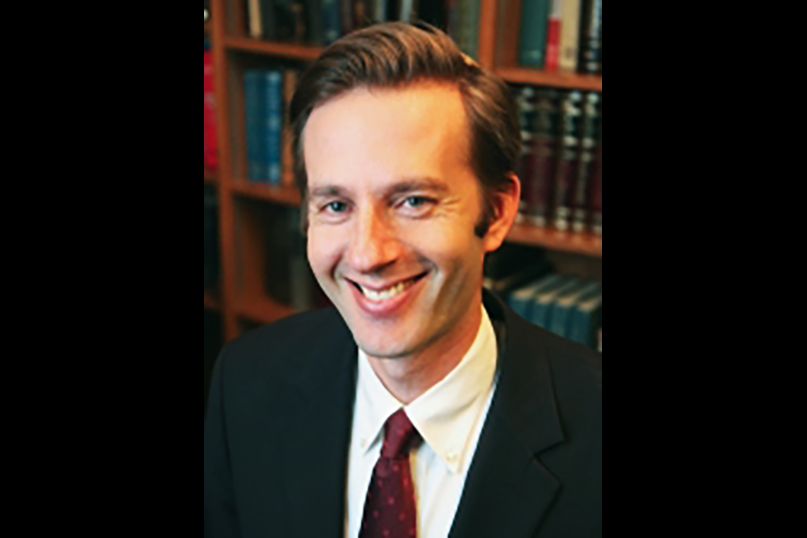
Leading authority on egalitarianism in Jewish law to discuss “Navigating the world as a Jew and as a human being” at New Haven ‘Kallah.’
By Stacey Dresner
NEW HAVEN – Rabbi Ethan Tucker will be guest speaker at New Haven’s 5th Elm City Kallah, a collaboration of Beth El Keser Israel (BEKI), Westville Synagogue, and Congregation B’nai Jacob, to be held Oct. 29- 31.
The weekend’s theme is “Navigating the World as a Jew and a Human Being: A Weekend of Learning and Exploration.”
“How we think of pluralism, integrity and community is so crucial to our world today – not only as Jews, but as human beings,” said Rabbi Eric Woodward of BEKI. “I’m so excited to get to learn from Rav Eitan at the Elm City Kallah.”
Tucker’s will discuss “Filial Loyalty and Divine Commandments: What do we do when parents expect things of us that the Torah forbids?” At Westville Synagogue on Friday night, Oct. 29 at 8 p.m. following Shabbat services and dinner.
On Shabbat afternoon at 1 p.m., he will lead a session at BEKI on “Navigating Relationships in a World of Difference: How do we proceed when aspects of our Jewish observance create discomfort with family members and friends?”
And on Sunday at 10 a.m., Tucker will lead a session at Congregation B’nai Jacob on “Ethical Norms as Foundation of Torah: Can basic human ethics be in conflict with the demands of Judaism?”
The son of Hadassah Lieberman and Rabbi Gordon Tucker, and the stepson of former U.S. Sen. Joseph Lieberman, Ethan Tucker is a graduate of Ezra Academy in Woodbridge. He is president and Rosh Yeshiva at Hadar, an educational institution that aims to empower Jews to create and sustain vibrant, practicing, egalitarian communities of Torah learning, prayer and service.
Ordained by the Chief Rabbinate of Israel, Rabbi Tucker earned a doctorate in Talmud and Rabbinics from the Jewish Theological Seminary and a B.A. from Harvard College. A Wexner Graduate Fellow, he was a co-founder of Kehilat Hadar and a winner of the first Grinspoon Foundation Social Entrepreneur Fellowship; and he serves as a trustee of the Harold Grinspoon Foundation.
Rabbi Tucker is also co-author with Rabbi Micha’el Rosenberg of Gender Equality and Prayer in Jewish Law (2017).
He spoke to the Jewish Ledger about his upcoming learning sessions at the upcoming Elm City Kallah.
JEWISH LEDGER: The overall topic for the upcoming Kallah is “Navigating the world as a Jew…and as a human being.” What is it about us that makes it hard to navigate the world as both a Jew and a human being?
RABBI ETHAN TUCKER: In a way it starts with the framing the Torah gives on this which we’re in the middle of reading about right now, where we start off the Bible with a very clear picture of humanity writ large. God is the creator of the whole world and creator of all human beings who have a common ancestor. We also have this cherished story, which is our story of Abraham and Sarah and everything that emerges from them which is more particular. And I do think Jews in that sense have always had this balance of saying, “We’re not necessarily the template for everybody in the world,” and at the same time we have a very important culture, tradition and covenant that we are uniquely a part of. I think part of what motivates me with a title like this weekend is that when we get out of whack too much in one direction or the other, we can go wrong. We become too parochial; we become too narrow, and you forget the kind of universal horizon that you are supposed to be looking at. And if you just dissolve into a sea of undifferentiated humanity, you lose the very particular story of God and the Jewish people.
So, these will be learning sessions with examples from the Torah and Jewish sources? Do you bring in modern examples as well?
My style with a lot of these sessions is to take people through sources from across the generations, so we’ll often start with a Biblical passage and then we’ll move to rabbinic literature and then we’ll see what medieval sources have to say, and then think about modern and contemporary applications. In terms of just my own teaching and thinking I really like to give people a kaleidoscopic view of what the traditionists had to say about these questions over time.
What was the impetus for the session at BEKI, “Navigating Relationships…How do we proceed when aspects of our Jewish observance create discomfort with family members and friend?”
This has always been an issue and part of the interesting thing about this session is seeing how it has always been an issue. But I also think it is timely, and in some ways, more intense and, in some contexts, more aggravated than it’s been before.
Look, on the one hand, the world we live in is more globalized, more transient. People move away from their parents, away from their families; they meet up with new people; they then go back home to those places.
It’s also a world in which people are connecting and reconnecting with their Judaism at different phases in life. What that creates is kind of relational situations where it could be a child who suddenly becomes more observant is going home and trying to figure out how to navigate that. Or someone who shows up to a college campus which is incredibly diverse in terms of who’s there and tries to figure out how to be themselves but also how to be in this larger web of relationships. The question is “how are they going to navigate that?”
So, I think the recent flow of people and ideals and practices in our global world have created more of these situations, but I’m interested in mining past precedents for getting guidance on them.
Are there solutions to this kind of conflict in the Torah?
The Torah, as in the five books of Moses, doesn’t do much to help you resolve it. It lays out a basic direction, a basic value, for instance, the obligation to honor your parents. It is rabbinic sources and the multi-vocality of those sources that really draws out the “well, what if your parent doesn’t practice the same way as you? What if your parent was abusive to you? What happens to relationships then? What are the limits of this obligation, what is the extent of this obligation? Part of what is so incredible about rabbinic sources is they’re really looking to turn raw general directives into a blueprint for how to actually live your life on a day-to-day basis. And that is why those are my guides and what I try to introduce other people to as we take on topics like this.
Will you be working with these rabbinic “blueprints” during the Kallah?
Yes, we’ll look at tons of sources together on source sheets. My hope is always that people gain from the session itself and that they take them home and get a chance to delve into them even after we’ve had our time together.
The Elm City Kallah will be held Friday, Oct. 29 through Sunday, Oct. 31. Admission is free for the Saturday and Sunday events. Admission to the Friday night dinner at Westville Synagogue. Is $20/per person, $60 per family. Reservations are required by Oct. 24: westvilleshul.org/ElmCityKallah2021; or call (203) 389-9513 or (203) 589-1100.







 Southern New England Jewish Ledger
Southern New England Jewish Ledger














